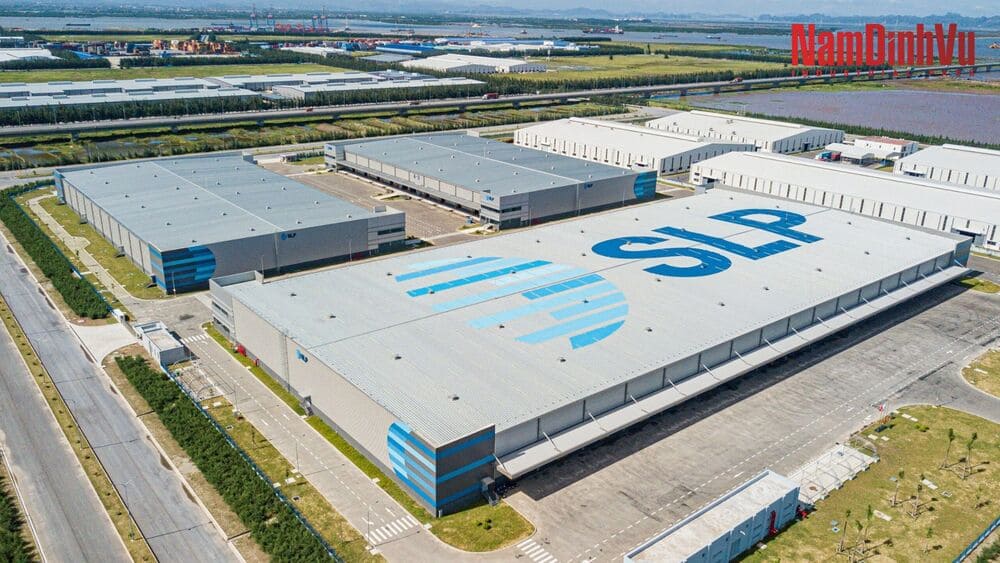Vietnam’s industrial zones have become highly attractive destinations for businesses, both domestic and international, seeking warehouse space. The country’s rapid economic development, along with its strategic location in Southeast Asia, makes it an ideal hub for manufacturing, logistics, and distribution operations. However, before leasing warehouse space in these zones, businesses need to understand both the advantages and limitations.
Advantages of Leasing Warehouse Space in Vietnam’s Industrial Zones
- Strategic Location: Vietnam’s industrial zones are strategically located, offering easy access to key markets, ports, and transportation networks. Many of these zones are situated near major highways, seaports, and international airports, providing businesses with excellent logistics capabilities. For example, the southern region with Ho Chi Minh City, Dong Nai, and Binh Duong is well-connected to the rest of Southeast Asia, ensuring smooth distribution both domestically and internationally.
- Cost-Effective Solutions: Warehouse rental rates in Vietnam are relatively competitive compared to other Southeast Asian countries. Leasing a warehouse in an industrial zone can be more cost-effective for businesses looking to expand in Asia. Additionally, Vietnam’s government incentives for foreign investment, such as tax breaks and reduced tariffs, make it an attractive location for warehouse operations.
- Modern Infrastructure: Many industrial zones in Vietnam are equipped with state-of-the-art infrastructure that meets international standards. These zones often provide high-quality warehouses with necessary amenities, such as loading docks, 24/7 security, and easy access to utilities like electricity and water. As a result, businesses benefit from modern, well-maintained facilities that ensure the smooth operation of their logistics and distribution activities.
- Attracting Skilled Labor: Leasing warehouse space in Vietnam also allows businesses to tap into the country’s growing pool of skilled labor. Vietnam has a young and rapidly developing workforce, making it easier for businesses to hire employees for warehouse operations and other logistics tasks. The availability of affordable labor is a significant advantage for companies seeking to maintain cost-efficiency.
- Proximity to Key Manufacturing Hubs: Many industrial zones in Vietnam are located near manufacturing hubs, which makes it easier to source raw materials and distribute finished goods. Businesses involved in production can benefit from this proximity, allowing for quick and cost-effective supply chain management. It also facilitates just-in-time delivery, which is crucial for maintaining low inventory costs and meeting customer demands quickly.

Limitations of Leasing Warehouse Space in Vietnam’s Industrial Zones
- Limited Warehouse Availability in High-Demand Areas One of the main challenges businesses may face when leasing warehouse space in Vietnam’s industrial zones is the limited availability of space in high-demand areas. In cities like Ho Chi Minh City and Hanoi, there is fierce competition for prime warehouse locations. As demand for warehouse space continues to rise, especially from e-commerce and manufacturing sectors, it may become increasingly difficult to secure a suitable facility without paying a premium.
- Increasing Rental Costs The demand for warehouse space in Vietnam is projected to rise significantly, which may lead to higher rental rates in the coming years. Businesses planning to lease warehouse space should be aware that the growing demand, especially in prime industrial zones, could drive up costs. According to some reports, warehouse rental prices are expected to increase annually, making it more expensive for businesses to lease space in certain regions.
- Competition for Skilled Labor While Vietnam offers a large and growing labor force, competition for skilled workers can be a challenge, especially in industrial zones located near major cities. As more businesses set up operations in these areas, it may become harder for companies to attract and retain the right talent. In some high-demand locations, there might be an influx of industries that require similar skill sets, which could put pressure on the available labor pool.
- Logistical Challenges in Some Regions While many industrial zones in Vietnam are well-connected, not all areas have the same level of logistical infrastructure. Some zones, particularly in rural or less-developed regions, may face challenges such as poor road conditions, limited public transportation options, or insufficient access to ports and airports. Businesses considering leasing warehouse space in these areas should carefully assess the region’s logistics capabilities to ensure smooth operations.
- Environmental and Regulatory Considerations Businesses looking to lease warehouse space in industrial zones must be aware of the regulatory requirements surrounding environmental concerns, waste disposal, and building codes. The Vietnamese government has been implementing stricter environmental regulations, which could increase compliance costs for companies operating in these zones. Additionally, any changes to local regulations could impact the business’s ability to operate efficiently.
In conclusion, leasing warehouse space in Vietnam’s industrial zones offers numerous advantages, including strategic locations, cost-effectiveness, modern infrastructure, and access to a skilled labor pool. However, businesses must also consider the limitations, such as the increasing competition for prime locations, rising rental costs, and potential logistical and regulatory challenges.
By carefully evaluating these factors and choosing the right industrial zone based on business needs, companies can take full advantage of the growing opportunities in Vietnam’s warehouse leasing market. As the country continues to develop its infrastructure and attract foreign investment, the industrial real estate market in Vietnam is set to remain a dynamic and rewarding space for businesses seeking expansion in Southeast Asia.
Source:
